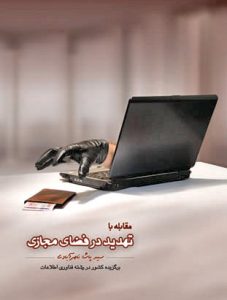Keeping Inline
Below is the Supreme Leader of Iran’s response (Fatwa) to a question by a Mehr News Agency reporter on the use of circumvention tools:
Mehr News Agency Reporter: Some news websites have been filtered. Some people, such as journalists, due to their occupation need to access these websites to gather news and information. Usually, the news covered on the filtered websites is not available on permitted websites. What is the religious order on the use of circumvention tools for those whose jobs necessitate access?
Supreme Leader: In general, the use of circumvention tools has to be inline with the rules and regulations of the Islamic Republic, and violation of the laws is not permissible.
Some time after, the web-pages containing this news were blocked on a few ISPs as a result of the automatic blocking by words – in this case ‘circumvention tools’ or ‘anti-filtering’.
See here for an English report on the topic by Radio-Free-Europe.
Going Local
In a letter to the Director General of the Central Bank of Iran, the Minister of Communications wrote:
From now on, only local E-mail addresses will be accepted from clients while opening up new accounts. Also, sending bank statements to foreign E-mail addresses is banned.
According to the letter, this decision has been implemented in order to realize some of the provisions of Article 46 of the Fifth Economic Development Plan (2010-2015). It identifies E-mail services such as G-mail, Yahoo, etc as one of the tools for foreign sources to gain access to users’ personal information.
What Is In a Name?
ISNA (Iranian Students’ News Agency) has asked other Iranian news agencies to follow in its suite in boycotting Google. This move comes after Google’s refusal to include “Persian Gulf” on its Google-Map services. Some experts believe that ISNA’s decision could lead to blocking Google completely in the country.
Cutting Ties
On the morning of Tuesday May 8th, some IPs were disconnected in Tehran. IT-Analyze reports that thirteen Iranian ISPs failed to meet their payment deadlines to a Dutch company from which the IPs were purchased. This led to the disconnection of the IPs by the TCI (Telecommunications Company ofIran).
In a separate article, the TCI announced that the disconnection of IPs is not under its jurisdiction and that is has not disconnected any IPs inTehran.
Counter-Measure
Pasha Naser-Abadi’s book titled “Countering Threats in Cyberspace” has been published. The book which also includes the Cyber Crimes Law is based on the author’s personal experiences with users.
**Countering Threats in
Cyberspace” Cover
Unknown Origins
The VP of Development at the IT Organization of Iran commented regarding lingering uncertainties on the cause of the alleged cyber attack against the Ministry of Oil:
It is not yet clear whether the disruption in the Ministry of Oil’s website was intentional or due to negligence.
He continued:
Regardless, every incident should be considered a warning and we should work to remedy the situation.
Power Monopoly
Paydari Group’s Internet TV channel has been filtered in Iran. The reason behind this decision is yet to be officially announced. Paydari Front – which can loosely be translated to the ‘Resistance Front’ – is a principalist political group, with close ties to the Supreme Leader. One of the group’s main reasons for the establishment of an Internet TV channel was to counter the monopoly of the IRIB (Iranian Broadcasting) in the field.
Some Statistics
Mehr News Agency reported on the latest statistics of the telecommunications network in the country. This report puts the number of internet users at 28.5million, with 1,154 cities connected to the data network. Mehr also states that 334 universities are connected to the internet through a fiber-optic connection. The source of these statistics is unclear.


